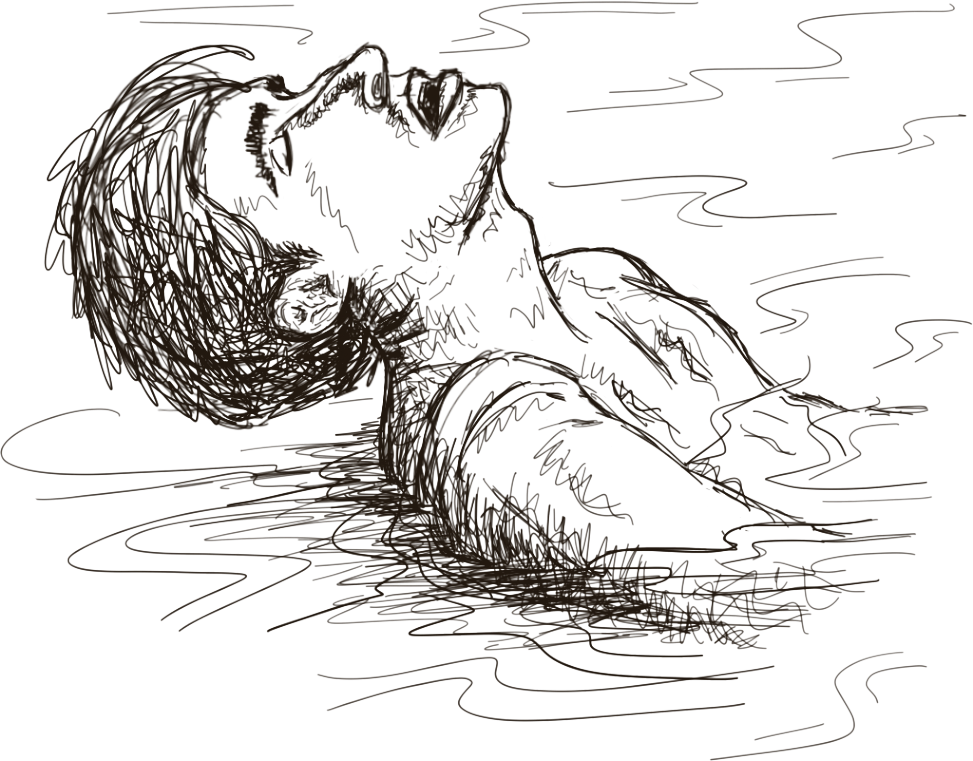This article was adapted from a Twitter thread first published on April 15, 2022 and subsequently published to Medium.
Right after I realized I was trans and started to do something about it, the dysphoria (temporarily) got much worse. This isn’t uncommon but because I didn’t know that, I thought I’d really fucked up and broken myself.
So I’m going to talk about it a little here.
When I was closeted, even from myself, I was unknowingly living in a constant state of low-key dysphoria and coping dissociation. I didn’t recognize it any more than a fish knows it’s in water. It was just my life.
I had no connection to my physical body. It was just something I needed to take care of so my brain had someplace to live. I couldn’t keep any kind of exercise routine because it didn’t mean anything to me. I couldn’t make myself have fitness goals or find any enjoyment in moving and inhabiting my body. I didn’t feel any particular connection with the form I saw in the mirror (though I didn’t realize this until later, after transition returned that to me). This was my dissociation.
I had Weird Feelings about clothes but I’d just wear what other people said looked good. The idea of dressing “for me” wasn’t something I could even wrap my mind around. Nothing ever felt right or good, just at best neutral. This was (part of) my dysphoria.
The first time I felt gender euphoria was the first time I realized something else was possible. I surfaced briefly from the water and breathed air, and it was glorious. It also shifted my window of possibility.
Because I knew about air, I suddenly felt the water for what it was.

The dysphoria, now seen and named, was everywhere. It always had been, but I’d been suppressing it. I’d been numbed to it. I was no longer numb, and it hurt like hell.
This was the most painful point in my transition, thus far at least. Everything hurt. My gender-euphoric highs were higher than I’d ever felt, but the lows were brutal, and the low-key dysphoria — always present but never before acknowledged — now drummed against me constantly.
This is why the early stages of transition are so crucial, why delays in medical care (when desired) are so cruel and can lead to people taking their own lives from the unbearable pain. I had ripped off the careful layers of dissociation and denial and exposed my raw beating heart to the constant brutal pain of dysphoria.
I theorize that this phenomenon has contributed to belief that so-called “Rapid Onset Gender Dysphoria” is a thing (it isn’t). Because from the outside — and indeed, even to myself in many ways — I had appeared “fine” before, but now that I was finally facing my dysphoria, it quite suddenly hurt much more acutely than when I had suppressed it.
I’ve heard this is common in trauma recovery. In order to heal, survivors must reopen wounds, face their demons, and fight like hell to process pain that they’ve been suppressing in order to cope. There is a period of extreme emotional upheaval. This is how it is to face suppressed dysphoria, and I’d been suppressing it for decades.
Being perceived as what I now knew was the wrong gender hurt like hell. Suddenly I couldn’t bear to be misgendered, to hear the wrong name or pronoun or honorific. I was desperate for people to understand about me what I had finally learned about myself, to be seen as me, and not as the facsimile I’d been putting forward for so many years.
And I knew exactly what I needed to be able to make that happen. For me, it was social and medical transition. But you can’t access medical transition right away, even in best-case scenarios. And even when you do, it takes weeks, months, and years for various effects to show outwardly.
The whole process was slow and painful, a lot of frustration and dysphoria punctuated by moments of bliss.
But that acute, constant pain did eventually get better. I changed my wardrobe, name, and pronouns, and started hormone replacement therapy (HRT). I started working out, for the first time in my life doing it for myself instead of because I was “supposed to.” The misgendering got less frequent. My body started to feel more like home. I started to feel like I could breathe again. And it was better than it had ever been before.
I had it extremely good. It only took a few months from my initial inklings to being prescribed HRT. Many, many folks who need HRT have to wait months or years (common in the UK), or never can at all. It’s a painful limbo to sit in, and it’s why we fight for better access for folks who want it. I plan to have top surgery soon. But I will probably never be able to afford other surgeries, as few insurance plans cover them and they are prohibitively expensive.
I can only speak from my experience, which includes medical transition, but not everyone chooses or is able to access medical transition. That doesn’t mean things won’t get better. Many happy trans & nonbinary folks don’t medically transition. For them, as I understand it, it’s about learning to express their genders in ways that make them feel happy and fulfilled; cultivating supportive relationships; and learning to love themselves in new ways.
What I want trans folks to know is that, if accepting yourself or coming out has made things hurt worse, it doesn’t mean you’re broken, and it will get better.
And what’s on the other side is absolutely worth it.